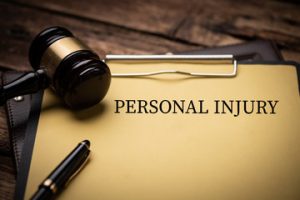Roofing projects are complex and require specific expertise. Choosing the right contractor ensures high-quality work and customer satisfaction. Researching candidates, reading reviews, and vetting credentials helps homeowners make an informed decision.

A reliable roofing contractor has a team of licensed pros that adhere to industry standards. They also provide detailed estimates that break down costs. Contact Bears Valley Roofing Contractor for professional help.
Whether you need roof repair, new installation, or just routine maintenance, a qualified roofing contractor can meet your needs and provide you with quality results. Before hiring a contractor, consider their qualifications and experience, as well as other important factors like licensing and insurance. This will help ensure your project is handled in accordance with local laws and regulations, while protecting you from liability.
Roofing projects can be complex, requiring hands-on experience and knowledge of various building structures and materials. A reliable roofer should have a portfolio of previous work that demonstrates their ability to meet varying design preferences and roofing challenges. Their years of experience also give them the advantage of advanced problem-solving skills, ensuring timely and efficient work while delivering high-quality results.
Qualifications like a strong educational background and industry certifications can indicate your contractor is committed to meeting high standards in the field. While general handymen may know “a little bit of everything,” a dedicated roofer specializes in roofing and has deep expertise that translates into better material selection, more innovative installation methods, and durable finishes that stand up to weather and wear.
Licensing requirements for roofing contractors vary from state to state, with some imposing rigorous exams and experience requirements while others require minimal registration or none at all. Regardless of the specific rules in your jurisdiction, it is essential that your roofing contractor has a valid license to operate in the industry.
In addition to state-level licenses, many roofing contractors also hold manufacturer certifications that demonstrate their commitment to quality workmanship and customer service. The CertainTeed SELECT ShingleMaster(tm) designation, for example, recognizes contractors who have met the highest standards set by leading roofing material manufacturers. Such credentials give you confidence that your roofing contractor is a professional who will follow strict installation guidelines and offer warranties to back up their work.
Experience
Most states require roofing contractors to pass an exam and meet certain experience standards before receiving a license. You can learn about the licensing requirements in your state by visiting the website for the relevant agency. Check for specific information on exam formats, experience prerequisites, and application checklists.
Roofing contractors also need to have adequate insurance coverage for their tools and equipment. Having this insurance protects you from high out-of-pocket costs should your contractor’s tools be damaged or stolen while working on your roof.
Licensing
Many states, including Florida and California, require roofers to pass a state licensing exam. These exams typically involve a combination of experience, education, and insurance requirements. Roofing contractors must also provide their clients with proof of insurance and workers’ compensation coverage to protect themselves from financial liability.
The exact requirements vary widely from state to state. Some have strict license thresholds based on job cost, while others offer general contractor pathways or require minimal registration. Regardless of the requirements, most states expect roofers to have two to four years of hands-on experience. They must be able to demonstrate this experience by providing documentation, submitting references, or passing an exam. Some states also have additional eligibility requirements, such as background checks and fingerprinting.
Regardless of state licensing requirements, some roofers choose to pursue certification or registration to boost their credibility and improve their business. Regional roofing contractor associations often offer these opportunities. Other benefits include networking opportunities and access to training and industry-specific resources.
In New York, for example, there is no state licensing requirement, but many cities and counties have their own requirements. New York City, for instance, requires roofers to register as Home Improvement Contractors and obtain the proper permits before starting work. Additionally, roofers in the counties of Nassau, Suffolk, Westchester, Rockland, and Buffalo need a Home Improvement Contractor license from the appropriate county agency. These licenses also require insurance and a permit bond or trust fund.
Insurance
Roofing is a dangerous job, and accidents can happen at every stage of the process. Look for a contractor with Workers’ Compensation Insurance, which protects you as the homeowner from being held responsible for the cost of medical bills and lost wages if an employee is injured on the job. This is a legal requirement in New York City, and it’s best to hire contractors who have this coverage.
Similarly, general liability insurance is indispensable for roofing contractors. This policy protects your business against third-party bodily injury, property damage, and advertising injuries. The cost of this insurance in NYC is usually around $500-3,000 per year, depending on your insurance needs and business size.
In addition, it’s a good idea for roofing contractors to carry Commercial Auto Insurance. This type of insurance covers your vehicles and equipment in case they are damaged or stolen during transit. Roofers often use trucks, vans, and trailers to transport equipment and materials from job to job, so this insurance is an important investment for them.
Roofing contractors may also have pollution related exposures that could be costly to cover without Contractors Pollution Liability insurance. The spraying, coating, sealing, and adhesive products used in roofing systems can emit fumes that are harmful if inhaled. In addition, water intrusion into a structure created by faulty roofing systems creates an ideal environment for mold growth that can be harmful to individuals inside the building. Most GL policies exclude claims related to pollution, but CPL can be purchased as an add-on or via an endorsement. This is a great option for roofing contractors who have been denied coverage by traditional insurance markets and don’t have the ability to self-insure.
